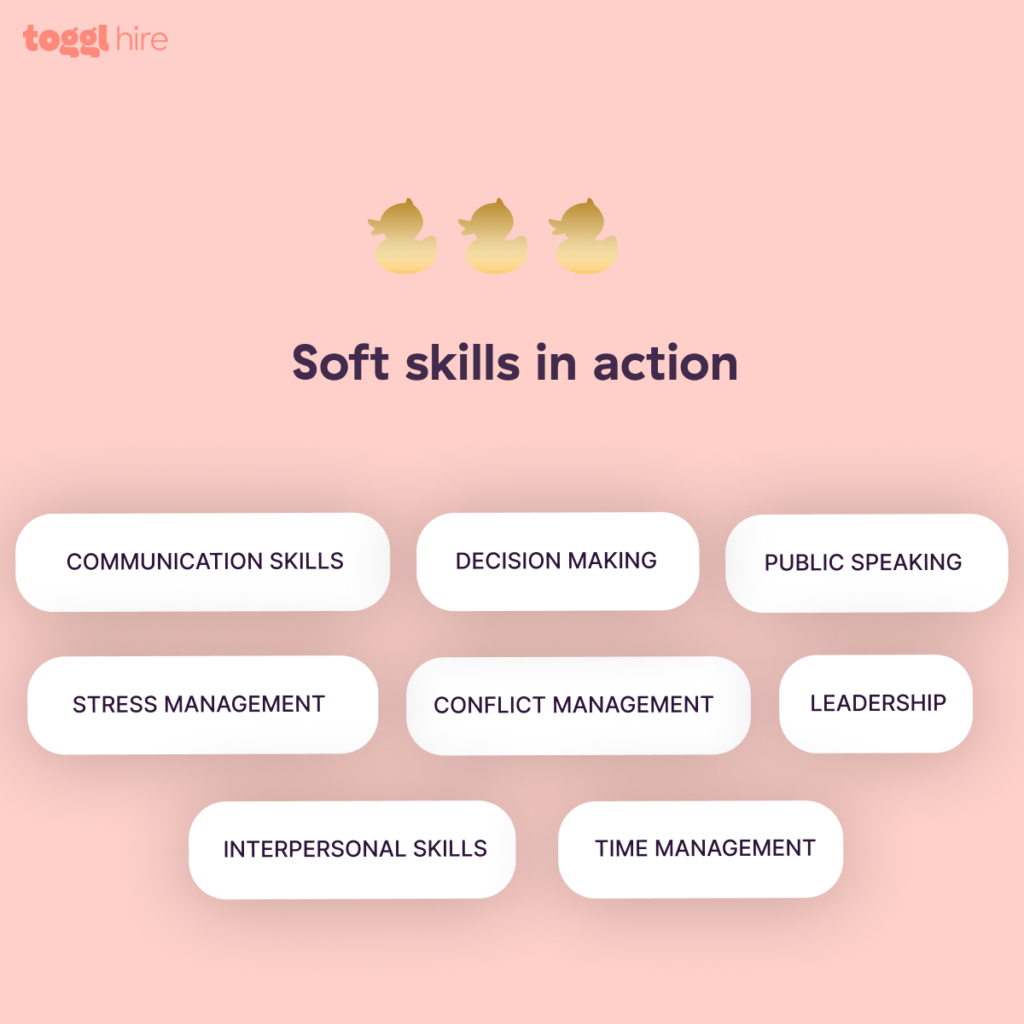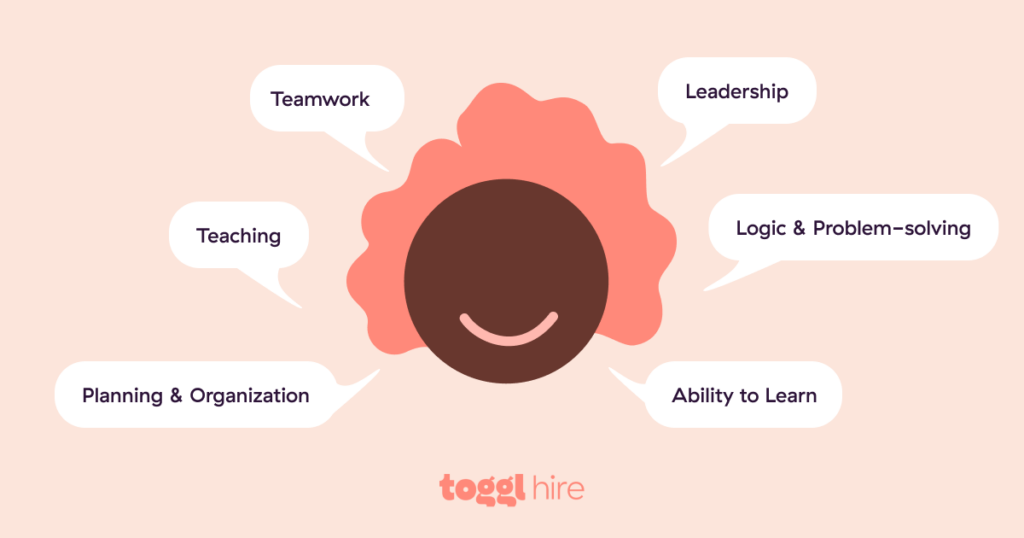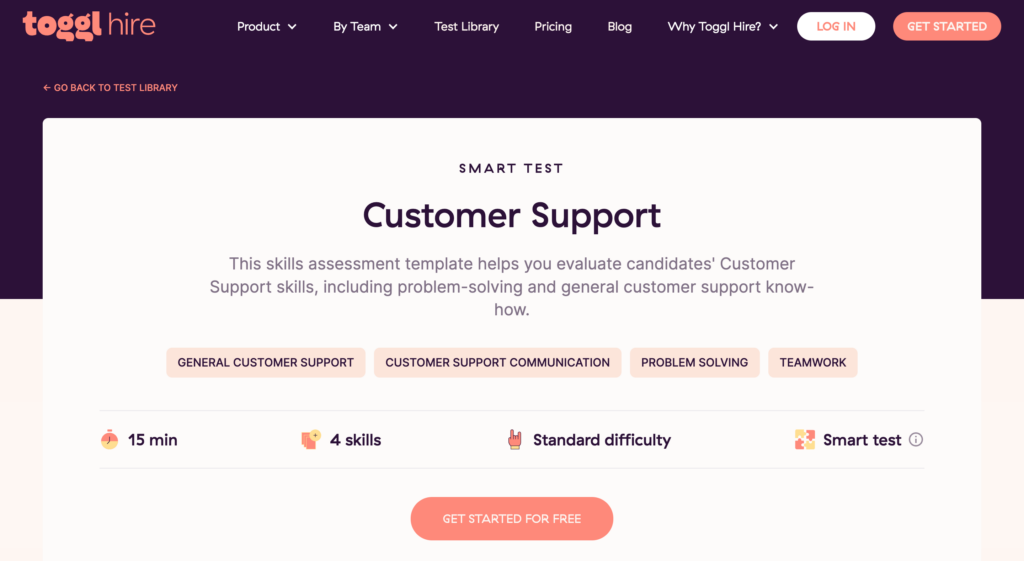“The customer is always right!” – is a famous line we’ve all heard, and for good reason. Understanding the value of this mantra and developing strong customer service skills can make all the difference in building a loyal customer base.
In fact, according to Forrester Research, customers are 2.4 times more likely to stick with a brand that solves their problems quickly. To meet customers’ evolving needs and expectations, organizations need to focus on developing and nurturing real customer service skills.
In this article, we explore the eight crucial skills that can elevate your customer service from good to great and help organizations like yours build long-term customer loyalty. Before we dive into those skills, let’s first look at a few facts and figures that underscore the importance of customer service and the impact it can have on your bottom line.
TL;DR – Key Takeaways
- Customer service is all about supporting your customer’s journey from the beginning until the end. This includes answering any questions they might have about your product or service, helping resolve any problems, and collecting important customer feedback.
- Organizations with successful customer service teams typically take a customer-centric approach, leveraging effective communication and quick problem-solving to surpass customer expectations consistently in their many customer interactions.
- A great customer service representative will have fine-tuned several important customer service skills. These include active listening, patience, empathy, problem-solving, and in-depth knowledge of your product or service in order to be successful.
- Hiring for the position isn’t just about a candidate’s experience, it’s about finding candidates with broad skill sets, job seekers who are willing to learn, and creating teams across various locations.
- Through customizable assessments, Toggl Hire can help you objectively screen and evaluate your candidates’ communication skills, problem-solving abilities, and customer service talents.
4 Cornerstones of great customer service
In simple terms, customer service is the assistance and advice provided to customers by the company whose products or services they use. So it refers to the process of supporting a customer through their purchasing process, from the early consideration stages through to after-sales service.
To get a little more technical, there’s another side to customer service, which is the customer experience (CX). Simply put, it’s how a customer perceives their entire experience with a company. Knowing the difference between customer service and customer experience is important, but understanding how they go hand-in-hand is even more so.
Remember, your company isn’t just in tech, retail, food, or mining; it’s also in the customer service industry.
Let’s look at a few customer-related statistics that organizations cannot ignore:
- 70% of organizations see a direct connection between customer service and performance
- 48% of consumers expect specialized treatment for being good customers.
- 70% of consumers spend more when companies offer personalized and seamless customer experiences.
So, how do organizations take advantage of these stats? With these four cornerstones:
#1 – Customer-Centric Approach
This strategy focuses on putting your customer at the heart of your business, which can result in happier experiences for them. The core idea behind a customer-centric approach is building products and services that meet the customer’s needs while anticipating their wants and training the customer service team to actively listen to what customers have to say.
If your business is only focused on keeping shareholders happy and ignores the customer support team, it is destined to fail. The happier customers are, the more they will advocate for your brand.
#2 – Effective Communication
Everybody wants to be heard and understood. To feel like the person they are talking to truly understands what they are saying. And being able to listen to customers can help achieve this basic human need.
The opposite is also true. Customers also need to be able to understand what your company and support team are saying to them. The last thing you want is customer service reps who lose their focus easily, mumble, or communicate in a way that is too complex for your customers to understand. Simply put, you need staff members who speak clearly and use concise sentences and language to communicate.
#3 – Quick Problem-Solving
The sooner you can fix a customer’s problem, the sooner they can get back to their lives. Effective customer service strategies and agents understand the importance of creating a seamless problem-solving experience.
Does the customer need to return a laptop that is vital to their daily work? They won’t be able to wait through a 14-day period when the item is booked in for an assessment. Sending out an immediate replacement while your technician isn’t rushed to find the root of the problem creates a positive customer experience, bringing them back to your business time and time again.
#4 – Going the Extra Mile: Surpassing Expectations
In today’s competitive marketplace, it is more important than ever for businesses to go the extra mile to exceed customer expectations. When customers are consistently surprised and delighted by their experiences, they are more likely to become loyal advocates for the brand.

Just look at American Eagle Outfitters, a US-based clothing brand that accepts returns without the customer needing an invoice, removing the hassle from the customer journey and placing trust in customers not to abuse the scheme. And for good reason. Businesses with superior customer experience are reported to bring in 5.7x more revenue.
With all of that in mind, can you really afford to not hire the best customer service reps?
8 Crucial Customer Service Skills to Look For
The four cornerstones of great customer service touches on many important skills. Next, let’s take a closer look at which skills you need to keep in mind when hiring a customer service professional.
1. Active Listening Skills
Active listening involves carefully paying attention to what a customer is saying, whether it’s over the phone, in person, or through written communication like emails or live chats. Active listening is a critical part of customer service because it allows you to fully understand a customer’s needs and concerns.
To me, one of the most important traits a customer service rep has to master is the ability to really listen. Not just superficially read through the customer’s notes and questions, but to take time, if needed, to read between the lines, and really listen to the customer to understand them and to offer the best support experience possible.
Kadri Heinväli, Head of Customer Success @ Toggl
A great example of active listening is asking relevant follow-up questions to get to the heart of what the person is trying to say. When looking for a customer service employee with good customer service skills, you should consider candidates who:
- Listen carefully to the speaker or read the communication carefully.
- Use clear and easy-to-understand language.
- Follow up by asking relevant questions to clarify any issues.
- Summarize the customer’s issue back to them to ensure mutual understanding.
With these active listening skills, the customer service agent can better understand the customer’s perspective and provide relevant solutions to help customers.
2. Clear Communication
A critical part of communication is ensuring that the customer understands the information you’re conveying. Clear communication skills is arguably the most important customer service skill.
Luckily, assessing communication skills is relatively simple. During the hiring process, you can use emails and video calls to evaluate a candidate’s communication skills. Look for candidates who speak clearly, listen actively, and use simple, jargon-free language that’s easy to understand. By focusing on communication skills, you’ll be more likely to find a candidate who can provide excellent customer service.
Customer support roles typically attract a sleuth of applications. That’s when screening and identifying top talent gets really difficult. If this sounds familiar, you might want to check out our asynchronous Video Intros.
This video test format was designed for customer-facing, communication-heavy roles – exactly like customer support! Adding a Video Intro test at the start of your hiring process can help you screen candidates at scale while assessing core job-specific skills.
3. Patience and Empathy
Empathy is the ability to understand and share another person’s feelings and to put yourself in the customer’s shoes, especially those of an irate customer. Empathetic customer service agents lead to increased customer satisfaction and loyalty. In fact, research suggests that the top 10 most empathetic companies increased their monetary value more than twice as much as the bottom 10 companies.
It’s not just up to the customer service team (or potential employee) to put empathetic procedures in place. Leadership should create a culture that values empathy so that agents feel comfortable expressing it.
Addressing the needs of users on a constant basis can lead to a “copy/paste” approach that can cause some team members to become stale or robotic in their responses. Having empathy for the user and remembering that you are dealing not with a pile of words but a human being on the other end of that email helps to keep support efforts going no matter what.
Jake Woehlke, Support @ Toggl
4. Problem-Solving Skills
Many times, the role of a customer service professional calls for some clever problem-solving, requiring patience, creativity, and a methodical approach to identifying the root cause of a customer’s issue.
Effective problem solvers must look beyond the surface-level issue to identify the underlying factors contributing to the problem.
Customer service agents with strong problem-solving skills can provide efficient solutions, prevent recurring issues, and build customer trust, satisfaction, and loyalty.
Being a good communicator will only get you so far. If you’re unable to help users fix their actual problems, you will fail pretty quickly.
Vedran Fak, ex-Head of Support turned Technical Product Manager @ Toggl
5. Knowledge of the Product or Service
To effectively help solve customer problems and respond to customer queries, the customer service team also needs to have a deep understanding of the product or service.
Unlike other teams in your organization, like product, sales, and marketing, customer service representatives speak to your customers daily, making them an invaluable source of knowledge when it comes to how your customers perceive your product, service, or company.
Your customer service reps should be encouraged to share these valuable insights and also educate customers on product usage and troubleshooting techniques, empowering them to make informed decisions and maximize the product’s benefits.
Lastly, a great rep will be armed with intimate knowledge of the company policies, return processes, point-of-sale systems, and timeframes for each and every department. Really, your customer service teams are the MVPs of your organization.
6. Adaptability
According to research, 82% of customers consider a quick resolution of their issues as the most important factor in providing great customer service. This suggests you need customer service representatives who can act quickly to resolve customer issues.
One way to evaluate this important customer service skill is by administering a timed assessment. This assessment can evaluate a candidate’s ability to quickly analyze customer problems and provide effective solutions in a timely manner.
7. Positive Attitude
In the world of customer service, it’s important to acknowledge that sometimes the customer’s complaint is justified, and the company might have made a mistake. Whether there’s an issue with a product or service, a delay in delivery, or an error in an order, it’s essential for customer service reps to respond positively and in a way that respects the customer.
Of course, not all customers will be friendly or polite, especially when they’re upset or frustrated. Regardless of the context, a poor customer service experience will lead to bad reviews of your organization.
I think positivity is a skill rather than a personality trait; turning not-so-great situations into a pleasant experience is an awesome skill to have. We are also dealing with constant changes and learning every single day, so open-mindedness to learn new things and have a great attitude while doing it helps a bunch.
Eduardo Tamayo, Support @ Toggl
The goal of every interaction should be to ensure that the customer is satisfied and has a positive experience with the company. The ideal candidate can keep cool under pressure and help guide a frustrated customer through to a solution.
8. Teamwork Skills
Agents must prioritize cooperation, communication, and respect for their peers’ perspectives. By working collaboratively, agents can combine their customer service skills and expertise to tackle complex customer issues more efficiently, leading to optimal outcomes for customers.
Now that you better understand which customer service skills to keep a look out for, how do you find the perfect candidates?
How to Spot the Ideal Customer Service Candidate
When looking to hire new customer service staff, it can be difficult to identify the ideal candidate for the job. However, several factors can help you find individuals with the necessary soft skills to excel in customer service.
1. Broad Skill Set
Customer service positions require a versatile skill set that includes skills like communication, problem-solving, and empathy. It’s essential to look for candidates who can excel at multiple skills at once to offer good customer service.

2. Entry Level Opportunities
Customer service jobs often provide entry-level opportunities, making them accessible to individuals starting their careers or switching to a new industry. Consider hiring candidates who show potential and are willing to learn every aspect of your organization.
3. Transferable Skills
Looking beyond traditional educational backgrounds can help you find hidden talent for your business. For example, a candidate who has worked in the food service industry may perform well under pressure, while a junior computer salesperson may be able to quickly diagnose problems while upselling the customer.

4. Flexible Work Arrangements
Consider offering flexible work arrangements, such as part-time, full-time, remote, and in-person positions, to attract candidates from diverse backgrounds. This flexibility can be especially appealing to individuals who are students, working parents, or seeking a work-life balance.
5. Global Relevance
The global nature of business today requires customer service in multiple languages and cultural contexts. Consider hiring candidates with language skills or cultural knowledge relevant to your customer base to provide personalized and empathetic service to all your customers.
To ensure that you find the best customer service representative for the job, skills testing can help to quickly identify the best candidates and screen out those who don’t have what it takes to excel in the role.
As a bonus, skills testing can also help eliminate unconscious bias in screening, ensuring a fair and equal selection process.

Screen and assess top customer service skills with Toggl Hire
So you need customer service professionals with strong communication, problem-solving, and interpersonal skills? Using a skills assessment platform like Toggl Hire can help you objectively assess any candidate’s customer service skills quickly and effectively.
Identify the ideal candidate for the job with our customizable assessments and intuitive interface.
Juste loves investigating through writing. A copywriter by trade, she spent the last ten years in startups, telling stories and building marketing teams. She works at Toggl Hire and writes about how businesses can recruit really great people.





